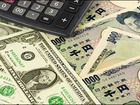Bank of Cyprus CEO John Patrick Hourican announced Tuesday he will step down in the summer less than two years into a major restructuring of the island's troubled largest lender.
The former Royal Bank of Scotland senior executive -- who joined BoC in October 2013 –- is stepping down for personal reasons but is contractually obliged to stay on for another four months, a BoC statement said.
 Full Story
Full Story
Airbus Helicopters has won a tender to replace Poland's Soviet-era military choppers, beating out British-Italian group AgustaWestland and U.S. manufacturer Sikorsky, local media reported Tuesday.
Airbus, formerly Eurocopter, has won the tender to deliver 70 multipurpose Caracal EC725 helicopters to Poland's army under a contract worth an estimated 2.5 billion euros ($3 billion), according to the Gazeta Wyborcza daily.
 Full Story
Full Story
Swiss banking giant Credit Suisse said Tuesday a strong performance by its private banking unit helped first quarter net profit rise by 23 percent to 1.05 billion Swiss francs (1.02 billion euros, $1.1 billion), outstripping forecasts by analysts.
Its investment bank posted a 14 percent rise in pre-tax profits to 945 million francs.
 Full Story
Full Story
The dollar ticked higher Tuesday despite comments from a Federal Reserve official that cast doubt on a mid-year interest rate hike, while Greece's bailout woes held back the euro.
In Tokyo, the greenback bought 119.44 yen, up from 119.22 yen in New York and sharply higher from 118.62 yen in Tokyo earlier Monday.
 Full Story
Full Story
Ford showed off its new Taurus and Nissan unveiled a midsize sedan and a SUV designed for China on Monday at a Shanghai Auto Show that highlighted rising competition from lower-priced Chinese auto brands.
Competition in China is intensifying as economic growth slows and more manufacturers pile into the world's biggest auto market by number of vehicles sold. Global automakers are spending heavily to appeal to Chinese tastes and local brands are rolling out lower-cost version of SUVs and other popular vehicles.
 Full Story
Full Story
Cash-strapped Venezuela has received $5 billion in financing from China, President Nicolas Maduro announced Sunday as his country struggles with an economic crisis.
"We just received $5 billion more in financing for development," Maduro said in a radio and television address.
 Full Story
Full Story
Latin America was the most dangerous place for environmental and land activists, accounting for three quarters of all killings last year, according to a report Monday.
A total of 116 activists were killed around the world last year, with 87 taking place in Latin America, according to the report from Britain-based watchdogs Global Witness.
 Full Story
Full Story
More than 30 percent of young Arabs are jobless because of unrest in many Arab nations and not enough investment, a top labor official said on Sunday.
"The unemployment rate among Arab youth until the age of 30 years exceeds 30 percent," the director general of the Arab Labor Organization Ahmad Mohammed Luqman told AFP.
 Full Story
Full Story
Embattled President Nicolas Maduro marks two years in power Sunday with Venezuela's deep pockets pinched hard by plummeting oil prices, Latin America's highest inflation and simmering anger on the streets.
"It is very clear that Venezuelans of all socioeconomic groups have seen their quality of life lose ground. But the poor are those who have lost the most," said economist Maxim Ross at the Universidad Monte Avila in Caracas.
 Full Story
Full Story
French Finance Minister Michel Sapin said Friday that Europeans seek "stability over the long term" with the euro "at its current level."
"If we would like to, or we would let known that we would like to, let the euro's value fall further, we would enter a dangerous zone," he said.
 Full Story
Full Story



